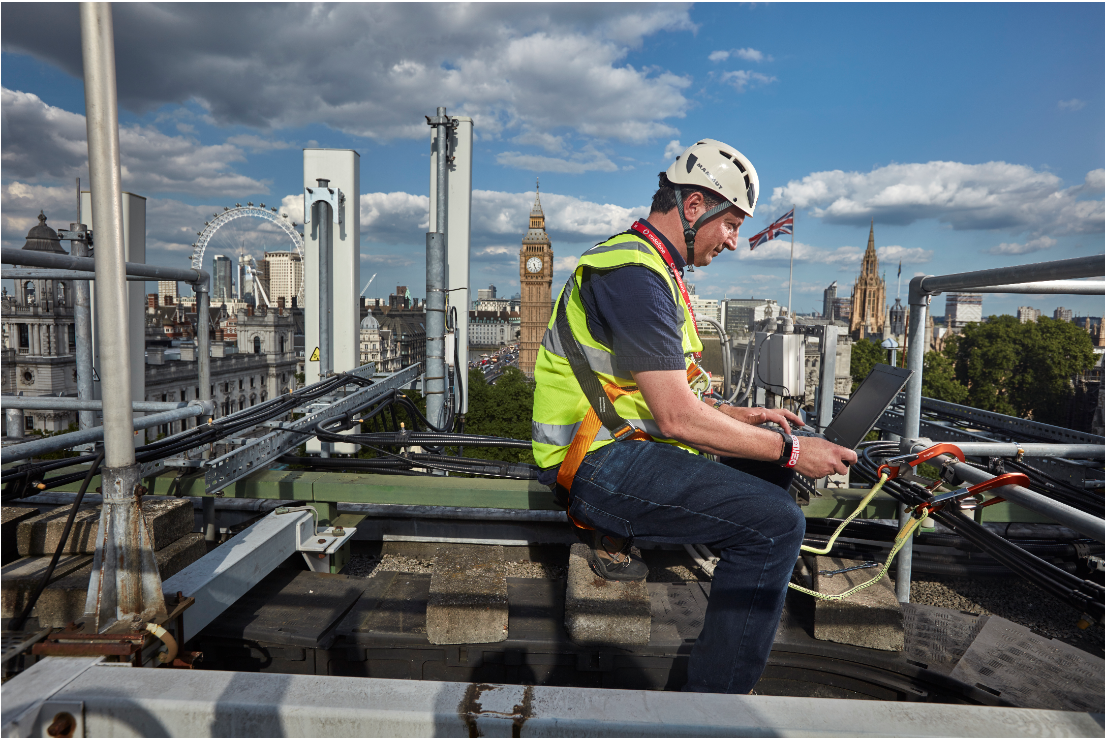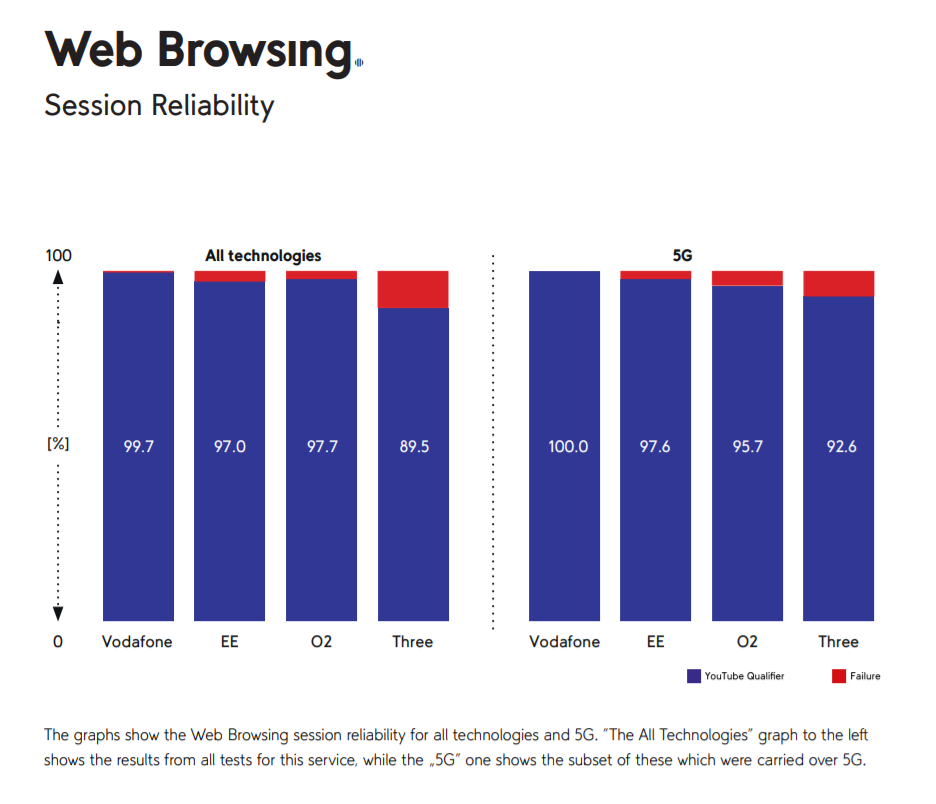A new audit claims Vodafone is the best 5G network in London
In a test of 5G networks within London, Vodafone has beaten out the competition, as it has been named the capital’s number one 5G provider by testing company, umlaut.

A new report from testing company, umlaut, has found that Vodafone – working in partnership with Ericsson – currently delivers the most reliable 5G network, as well as the best data performance within London.
The benchmark from unlaut was commissioned by Vodafone, and used YouTube performance, web browsing, and file downloads as a way to measure network performance, and found that Vodafone gives customers 99.7% reliability when using YouTube on 5G, and 100% reliability for web browsing.
Vodafone’s network was also the most reliable for file download and upload tests, and had the highest average download speeds at 215.2 Mbps. The tests measured 5G from Vodafone, Three, O2, and EE, and covered 55% of the total population of London.
“In London, our network is the most reliable, and is delivering on the promise of 5G download speeds."
Max Taylor, Vodafone.
“The results from this report show that our customers are getting the best 5G experience and that our investment in our network is really paying off,” said Vodafone’s consumer director, Max Taylor. “In London, our network is the most reliable, and is delivering on the promise of 5G download speeds. Every day we’re bringing this great 5G experience to more customers around the UK. We’re making sure Vodafone is the best place to come for the latest smartphones – a great network, with great benefits, and great value.”

In London, Vodafone uses 50 MHz of 3.4 GHz spectrum to deliver its 5G services, and relies on Ericsson as its sole network partner. This mid-band spectrum is seen as the perfect middle-ground for 5G, delivering a higher quality-of-service, whilst also providing excellent coverage. Massive MIMO technology (64 x 64) is included on more than 95% of sites.
Despite not being as fast as mmWave 5G, mid-band spectrum enables more people to experience the benefits of 5G, delivering speeds of 100-900 Mbit/s, with each cell tower providing service up to several miles in radius.
Ericsson Dynamic Spectrum Sharing (DSS)
Vodafone is also deploying Ericsson Dynamic Spectrum Sharing (DSS) technology in the 2.1 GHz spectrum band, which it says will further expand 5G coverage and “build the platform for the next generation of 5G services, including network slicing”.
SIGN UP FOR E-MAIL NEWSLETTERS
Get up to speed with 5G, and discover the latest deals, news, and insight!
In July, a year after Vodafone switched on 5G in seven cities across the UK, the company became the first UK operator to showcase a ‘Standalone’ 5G network. The new network has been built for Coventry University, where it will be used to trial state-of-the-art VR/AR tech, whilst supporting training for student nurses and allied health professionals.
“This new phase of 5G starts to deliver on the incredible capabilities of 5G that have had so much attention, but haven’t yet been brought to life. From here, we will really start to see 5G make a difference to the way organisations think about being connected, and what’s possible with connectivity in the future.”
Vodafone’s nearest rival in umlaut’s audit was EE, which achieved 97.6% reliability for web browsing, whilst Three came second to Vodafone in YouTube viewing, with 94.9% availability.
- Discover the best 5G networks in the UK and US
- Get your hands on the hottest 5G phones
- Millimeter wave: the secret sauce behind 5G
- The complete guide to 5G security
- We reveal the latest 5G use cases
- Discover the truth behind 5G dangers
- 5G towers: everything you need to know
Dan is a British journalist with 20 years of experience in the design and tech sectors, producing content for the likes of Microsoft, Adobe, Dell and The Sunday Times. In 2012 he helped launch the world's number one design blog, Creative Bloq. Dan is now editor-in-chief at 5Gradar, where he oversees news, insight and reviews, providing an invaluable resource for anyone looking to stay up-to-date with the key issues facing 5G.

